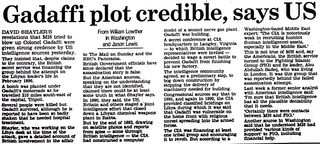My recent interview for the excellent Oxford University Free Speech Debate project, run by Professor Timothy Garton Ash. I discuss whistleblowing, the Official Secrets Act, Wikileaks and much more:
Tag Archives: accountability
What whistleblowers want
Whistleblowers want the sun and the moon — or at least they want to get their information out there, they want to make a difference, they want a fair hearing, and they don’t want to pay too high a personal price for doing so.
Is that too much to ask? The decision to expose criminality and bad practice for the public good has serious, life-changing implications.
By going public about serious concerns they have about their workplace, they are jeopardising their whole way of life: not just their professional reputation and career, but all that goes with it, such as the ability to pay the mortgage, their social circle, their family life, their relationship… Plus, the whistleblower can potentially risk prison or worse.
 So, with these risks in mind, they are certainly looking for an avenue to blow the whistle that will offer a degree of protection and allow them to retain a degree of control over their own lives. In the old days, this meant trying to identify an honourable, campaigning journalist and a media organisation that had the clout to protect its source. While not impossible, that could certainly be difficult, and becomes increasingly so in this era of endemic electronic surveillance.
So, with these risks in mind, they are certainly looking for an avenue to blow the whistle that will offer a degree of protection and allow them to retain a degree of control over their own lives. In the old days, this meant trying to identify an honourable, campaigning journalist and a media organisation that had the clout to protect its source. While not impossible, that could certainly be difficult, and becomes increasingly so in this era of endemic electronic surveillance.
Today the other option is the secure, high-tech publishing conduit, as trail-blazed by Wikileaks. While this does not provide the potential benefits of working with a campaigning journalist, it does provide anonymity and a certain degree of control to the modern whistleblower, plus it allows their information to reach a wide audience without either being filtered by the media or blocked by government or corporate injunctions.
As someone who has a nodding acquaintance with the repercussions of blowing the whistle on a secret government agency, I have liked the Wikileaks model since I first stumbled across it in 2009.
 As with most truly revolutionary ideas, once posited it is blindingly obvious.
As with most truly revolutionary ideas, once posited it is blindingly obvious.
Never before has this been technically possible — the idea that a whistleblower’s information could be made freely available to the citizens of the world, in order to inform their democratic choices, with no blockage, not censorship, no filtering or “interpretation” by the corporate media.
This is particularly relevant in an age when the global media has been consolidated in the hands of a few multinationals, and when these multinationals have a certain, shall we say “cosy”, relationship with many of top our politicians and power elites.
The control of the mainstream media by the spooks and governments has been the focus of many of my recent talks. These corrupt inter-relationships have also been recently laid bare with the News International phone-hacking scandals.
The days of garnering news from one favoured paper or TV bulletin are long gone. Few people now trust just one media outlet — they skip across a variety of news sources, trying to evaluate the truth for themselves. But even that can be problematic when something big occurs, such as the “justification” for the invasion of Iraq or Libya, and the current beat of war drums against Iran, when the corporate media mysteriously achieves a consensus.
Hence the democratic disconnect, hence the distrust, and hence (in part) the plummeting profits of the old media.
Wikileaks is based on a simple concept — it allows the people to read the source material for themselves and make up their own minds based on real information. This led to exposure of all kinds of global nasties way before the massive 2010 US data-dump.
Despite this approach, the impact was initially subdued until Wikileaks collaborated with the old media. This, as we all know, did indeed produce the coverage and awareness of those issues deemed important as it was filtered through the MSM. This has also inevitably lead to tensions between the new model hacktivists and the old-school journalists.
 No government, least of all the USA, likes to have demands for justice and transparency forced upon it, and the push back since 2010 has been massive across the world in terms of an apparently illegal financial blockade, opaque legal cases and a media backlash. Certain of Wikileaks’s erstwhile media partners have collaborated in this, turning on one of their richest sources of information in history.
No government, least of all the USA, likes to have demands for justice and transparency forced upon it, and the push back since 2010 has been massive across the world in terms of an apparently illegal financial blockade, opaque legal cases and a media backlash. Certain of Wikileaks’s erstwhile media partners have collaborated in this, turning on one of their richest sources of information in history.
However, Wikileaks is more than a media source. It is a whole new model — a high-tech publisher that offers a safe conduit for whistleblowers to cache and publicise their information without immediately having to overturn (and in some cases risk) their lives.
For this work, Wikileaks has over the years won a number of internationally prestigious journalism awards.
Inevitably, critics in the mainstream media seem to want to have their cake and eat it too: one early partner, the New York Times, has written that it doesn’t recognise Wikileaks as a journalist organisation or a publisher — it is a source, pure and simple.
Either way, by saying this the media are surely shooting themselves in the corporate feet with both barrels. If Wikileaks is indeed “just” a source (the NYT seems to be blithely forgetting that good journalism is entirely dependent on its sources), then the media are breaking their prime directive: protect a source at all costs.
However, if Wikileaks is a journalism or publishing organisation and as such is being targeted by the US government, then all other media are surely equally at risk in the future?
By not standing up for Wikileaks in either capacity, it appears that the old media have a death wish.
Over the years whistleblowers around the world have demonstrated their trust in Wikileaks, as it was set up by someone emerging from the original bona fide hacker community. And rightly so — let’s not forget that no source has been exposed through the failure of the organisation’s technology.
Many media organisations rushed to emulate its success by trying to set up their own “secure” whistleblowing repositories. What the media execs failed to understand was the hacker ethos, the open source mentality: they went to their techie department or commercial IT service providers and said “we want one”, but failed to understand both the ethos and the security concerns around closed, proprietary software systems, often channelled through the post-Patriot Act, post-CISPA USA.
Other, apparently well-meaning organisations, also tried to emulate the Wikileaks model, but most have died a quiet death over the last year. Perhaps, again, for want of real trust in their origin or tech security?
Why on earth would any security-conscious whistleblower, emerging out of a government, military or intelligence organisation, trust such a set-up? If someone comes out of such an environment they will know all-too-well the scale of the push-back, the possible entrapments, and the state-level resources that will be used to track them down. They either need an über-secure whistleblowing platform, or they need journalists and lawyers with fire in their belly to fight the fight, no matter what.
 So now to OpenLeaks — apparently the brainchild of Wikileaks defector Daniel Domsheit-Berg. He and the shadowy “Architect” famously fell out with Julian Assange in late 2010, just when the political heat was ramping up on the organisation. They left, reportedly taking some of the crucial coding and a tranche of files with them, and Domsheit-Berg decided to set up a rival organisation called OpenLeaks. As a result of his actions, Domsheit-Berg was uniquely cast out of the international hacker group, the CCC in Berlin.
So now to OpenLeaks — apparently the brainchild of Wikileaks defector Daniel Domsheit-Berg. He and the shadowy “Architect” famously fell out with Julian Assange in late 2010, just when the political heat was ramping up on the organisation. They left, reportedly taking some of the crucial coding and a tranche of files with them, and Domsheit-Berg decided to set up a rival organisation called OpenLeaks. As a result of his actions, Domsheit-Berg was uniquely cast out of the international hacker group, the CCC in Berlin.
He now seems to have been welcomed back into the fold and OpenLeaks appears, finally, to be ready to receive whistleblower information.
However, there is a crucial difference between the two organisations. Where Wikileaks wants to lay the information out there for public evaluation, OpenLeaks will merely act as a repository for certain approved mainstream media organisations to access. We are back to the original blockage of the corporate media deciding what information we, the people, should be allowed to ingest.
I would not wish to comment on Domsheit-Berg’s motivation, but to me this seems to be an even worse option for a whistleblower than directly contacting a campaigning journalist with a proven track record of covering hard-core stories and fighting for the cause.
 With OpenLeaks, the whistleblower loses not only the automatic widespread dissemination of their information, but also any semblance of control over which journalists will be working on their story. Their information will be parked on the website and anyone from pre-selected media organisations will be able to access, use and potentially abuse it.
With OpenLeaks, the whistleblower loses not only the automatic widespread dissemination of their information, but also any semblance of control over which journalists will be working on their story. Their information will be parked on the website and anyone from pre-selected media organisations will be able to access, use and potentially abuse it.
One could say that OpenLeaks operates as a secure staging platform where a whistleblower can safely store sensitive documents and information.… but the founder allegedly removed and destroyed sensitive files from Wikileaks when he jumped ship in 2010. Could any whistleblower really trust that OpenLeaks would not similarly “disappear” shit-hot information in the future?
Plus, there is the added worry for any rightly-paranoid whistleblower that the founder of OpenLeaks so easily abandoned Wikileaks when under pressure. Who’s to say that this would not happen again, if the full might of the Pentagon were brought to bear on OpenLeaks?
OpenLeaks offers neither the personal support of working with a trusted journalist and a media organisation with the clout to fight back, nor does it provide full disclosure to the wider public to side-step potential media self-censorship and government law suits, as the original Wikileaks model does.
As such OpenLeaks seems, at least to this particular whistleblower, to be an evolutionary blip — a retrograde step — in the quest for justice and accountability.
Lawyers challenge integrity of UK spy torture inquiry
 It was widely reported today that a number of well-respected British lawyers and civil liberties organisations are questioning the integrity of the much-trumpeted inquiry into UK spy complicity in torture.
It was widely reported today that a number of well-respected British lawyers and civil liberties organisations are questioning the integrity of the much-trumpeted inquiry into UK spy complicity in torture.
And about time too. One hopes this is all part of a wider strategy, not merely a defensive reaction to the usual power play on the part of the British establishment. After all, it has been apparent from the start that the whole inquiry would be questionable when it was announced that Sir Peter Gibson would be chairing the inquiry.
Gibson has certain form. He was until recently the Intelligence Services Commissioner — the very person who for the last five years has been invited into MI5, MI6 and GCHQ for cosy annual chats with carefully selected intelligence officers (ie those who won’t rock the boat), to report back to the government that democratic oversight was working wonderfully, and it was all A‑OK in the spy organisations.
After these years of happy fraternising, when his name was put forward to investigate potential criminal complicity in torture on the part of the spies, he did the publicly decent thing and resigned as Commissioner to take up the post of chair of the Torture Inquiry.
Well, we know the establishment always like a safe pair of hands.… and this safety has also been pretty much guaranteed by law for the last six years.
Ever since the Inquiries Act 2005 was pushed through as law, with relatively little press awareness or parliamentary opposition, government departments and intelligence agencies have pretty much been able to call the shots when it comes to the scope of supposedly independent inquiries.
 Interestingly, Tory grandee Sir Malcolm Rifkind, the former Foreign Secretary who now chairs the Intelligence and Security Committee, has also weighed in to the debate. On BBC Radio 4’s Today programme he stated:
Interestingly, Tory grandee Sir Malcolm Rifkind, the former Foreign Secretary who now chairs the Intelligence and Security Committee, has also weighed in to the debate. On BBC Radio 4’s Today programme he stated:
“I cannot recollect an inquiry that’s been proposed to be so open as we’re having in this particular case. When was the last time the head of MI5 and the head of MI6 – the prime minister has made quite clear – can be summoned to this inquiry and be required to give evidence?”
This from the senior politician who has always denied that he was officially briefed about the illegal assassination plot against Colonel Gaddafi of Libya in 1996; this from the man who is now calling for the arming of the very same extremists to topple Gaddafi in the ongoing shambles that is the Libyan War; and this from the man who is also loudly calling for an extension of the ISC’s legal powers so that it can demand access to witnesses and documents from the spy organisations.
No doubt my head will stop spinning in a day or two.…
Alastair Campbell — guilty of breaching the OSA?
 I have long suspected that Alastair Campbell, Labour’s former Director of Communications, may potentially have broken the UK’s Official Secrets Act. Now prima facie evidence is beginning to emerge that he did indeed breach the “clear bright line” against unauthorised disclosure of intelligence.
I have long suspected that Alastair Campbell, Labour’s former Director of Communications, may potentially have broken the UK’s Official Secrets Act. Now prima facie evidence is beginning to emerge that he did indeed breach the “clear bright line” against unauthorised disclosure of intelligence.
I know that the Metropolitan Police have their hands full investigating the meltdown that is the News of the World hacking scandal — and also trying to replace all those senior officers who had to resign because of it — but they do have a duty to investigate crime. And not just any old crime, in this case, but one that has potentially threatened the very basis of our national security.
Why do I say this?
 You’ll no doubt have some vague recollection that, in the run-up to the 2003 Iraq War, the British government produced a couple of reports “making a case for war”. The first, the September Dossier (2002), is the one most remembered, as this did indeed sex up the case for war, as well as include fake intelligence about Saddam Hussein trying to acquire uranium from Niger. Most memorably it led to the “Brits 45 minutes from Doom” front-page headline in Rupert Murdoch’s The Sun newspaper, no less, on the eve of the crucial war vote in Parliament.
You’ll no doubt have some vague recollection that, in the run-up to the 2003 Iraq War, the British government produced a couple of reports “making a case for war”. The first, the September Dossier (2002), is the one most remembered, as this did indeed sex up the case for war, as well as include fake intelligence about Saddam Hussein trying to acquire uranium from Niger. Most memorably it led to the “Brits 45 minutes from Doom” front-page headline in Rupert Murdoch’s The Sun newspaper, no less, on the eve of the crucial war vote in Parliament.
There was also the notorious leaked Downing Street Memo, where the then-head of MI6, Sir Richard Dearlove ©, was minuted as saying that the intelligence and facts were being fitted around the [predetermined war] policy.
However, for the purposes of a possible Regina v. Campbell day in court, it is the second report that requires our attention.
It was published in February 2003, just before “shock and awe” was launched to liberate the grateful Iraqi people. This report became known as the “Dodgy Dossier”, as it was largely lifted from a 12 year old PhD thesis that the spin doctors had found on the internet. However, it also included nuggets of brand-new and unassessed intelligence from MI6. Indeed, even the toothless Intelligence and Security Committee in Parliament stated in paragraph 82 of its 2002–2003 Annual Report ( Download ISC_2003) that:
“We believe that material produced by the [intelligence] Agencies can be used in publications and attributed appropriately, but it is imperative that the Agencies are consulted before any of their material is published. This process was not followed when a second document was produced in February 2003. Although the document did contain some intelligence-derived material it was not clearly attributed or highlighted amongst the other material, nor was it checked with the Agency providing the intelligence or cleared by the JIC prior to publication. We have been assured that systems have now been put in place to ensure that this cannot happen again, in that the JIC Chairman endorses any material on behalf of the intelligence community prior to publication.”
 At the time it was reported that Blair and Campbell had spontaneously distributed this report to journalists travelling with them on a tour of the Far East. The ISC confirmed that the intelligence had been passed to journalists without the permission of MI6 in its September 2003 special report — “Iraq Weapons of Mass Destruction: Intelligence and Assessments” (see pars 131 to 134):
At the time it was reported that Blair and Campbell had spontaneously distributed this report to journalists travelling with them on a tour of the Far East. The ISC confirmed that the intelligence had been passed to journalists without the permission of MI6 in its September 2003 special report — “Iraq Weapons of Mass Destruction: Intelligence and Assessments” (see pars 131 to 134):
“The document was originally given to a number of journalists over the weekend of
1 and 2 February and then placed in the Library of the House on 3 February. The Prime
Minister described the document as follows:
“We issued further intelligence over the weekend about the infrastructure of
concealment. It is obviously difficult when we publish intelligence reports, but I hope
that people have some sense of the integrity of our security services. They are not
publishing this, or giving us this information, and making it up. It is the intelligence
that they are receiving, and we are passing on to people. In the dossier that we
published last year, and again in the material that we put out over the weekend, it is
very clear that a vast amount of concealment and deception is going on.”
“Conclusions:
“The Committee took evidence on this matter from the Chief of the SIS on both
12 February and 17 July and separately from Alastair Campbell on 17 July. Both agreed
that making the document public without consulting the SIS or the JIC Chairman was
a “cock-up”. Alastair Campbell confirmed that, once he became aware that the
provenance of the document was being questioned because of the inclusion of
Dr Al-Marashi’s work without attribution, he telephoned both the Chief of the SIS and
the JIC Chairman to apologise.
“We conclude that the Prime Minister was correct to describe the document as
containing “further intelligence… about the infrastructure of concealment.… It is the
intelligence that they [the Agencies] are receiving, and we are passing on to people.”
“However, as we previously concluded, it was a mistake not to consult the
Agencies before their material was put in the public domain. In evidence to us the
Prime Minister agreed. We have reported the assurance that we have been given
that in future the JIC Chairman will check all intelligence-derived material on
behalf of the intelligence community prior to publication.”
 Crucially, Blair and Campbell had jumped the (old Iraqi super-) gun by issuing this information, but Campbell seems to have got away with it by describing such a breach of the OSA as a “cock-up”. Or perhaps just another precipitous “rush of blood to the head” on his part, as recently described in the long-suppressed testimony of SIS2 revealed around the Chilcot Enquiry and reported in The Guardian:
Crucially, Blair and Campbell had jumped the (old Iraqi super-) gun by issuing this information, but Campbell seems to have got away with it by describing such a breach of the OSA as a “cock-up”. Or perhaps just another precipitous “rush of blood to the head” on his part, as recently described in the long-suppressed testimony of SIS2 revealed around the Chilcot Enquiry and reported in The Guardian:
“Papers released by the Chilcot inquiry into the war show that an MI6 officer, identified only as SIS2, had regular contacts with Campbell: “We found Alastair Campbell, I think, an enthusiastic individual, but also somewhat of an unguided missile.” He added: “We also, I think, suffered from his propensity to have rushes of blood to the head and pass various stories and information to journalists without appropriate prior consultation” (my emphasis).
So why do I suggest that Campbell could be liable for prosecution? It appears that he was a “notified person” for the purposes of Section 1(1) of the OSA. While not employed by the intelligence agencies, notified persons have regular access to intelligence material and are subjected to the highest clearance — developed vetting — in the same way as the full-time spooks. As such, they are also bound by the law against disclosure of such material without the prior written permission of the head of the agency whose intelligence they want to disseminate. There is no room for manœuvre, no damage assessment, and no public interest defence. The law is clear.
And a report in today’s Telegraph about Andy Coulson and the phone-hacking scandal seems to show clearly that Campbell was just such a notified person:
“Unlike Alastair Campbell and other previous holders of the Downing Street communications director role, Mr Coulson was not cleared to see secret intelligence reports and so was spared the most detailed scrutiny of his background and personal life.….
“The only people who will be subject to developed vetting are those who are working in security matters regularly and would need to have that sort of information.
“The only special advisers that would have developed vetting would be in the Foreign Office, Ministry of Defence and maybe the Home Office. Andy Coulson’s role was different to Alastair Campbell’s and Jonathan Powell.
“Alastair Campbell could instruct civil servants. This is why [Coulson] wasn’t necessarily cleared. Given [the nature of] Andy Coulson’s role as more strategic he wouldn’t have necessarily have been subject to developed vetting.”
So it would appear that Alastair Campbell is bang to rights for a breach of the Official Secrets Act under Section 1(1). He released new, unassessed and uncleared MI6 intelligence within the dodgy dossier. This is not just some technical infraction of the law — although even if it were, he would still have a case to answer.
 No, this report led inexorably to our country going to war against Iraq, shoulder to shoulder with the US, and the resulting deaths, maimings, poisonings and displacement of millions of innocent Iraqi people. It has also directly increased the terrorist threat to the UK, as Tony Blair was officially warned pre-Iraq war by the then-head of MI5, Eliza Manningham-Buller. With the dodgy dossier, Campbell has directly harmed countless lives and our national security.
No, this report led inexorably to our country going to war against Iraq, shoulder to shoulder with the US, and the resulting deaths, maimings, poisonings and displacement of millions of innocent Iraqi people. It has also directly increased the terrorist threat to the UK, as Tony Blair was officially warned pre-Iraq war by the then-head of MI5, Eliza Manningham-Buller. With the dodgy dossier, Campbell has directly harmed countless lives and our national security.
Of course, many of us might fantasise about warmongers getting their just deserts in The Hague. But perhaps the OSA could prove to be Al Campbell’s Al Capone-style tax evasion moment.
Now, what about The Right Honourable Tony Blair?
RTTV interview: Murdoch’s ex-CEO arrested
UK spies get a B+ for intrusive surveillance in 2010
 The quangocrats charged with overseeing the legality of the work of the UK spies have each produced their undoubtably authoritative reports for 2010.
The quangocrats charged with overseeing the legality of the work of the UK spies have each produced their undoubtably authoritative reports for 2010.
Sir Paul Kennedy, the commissioner responsible for overseeing the interception of communications, and Sir Peter Gibson, the intelligence services commissioner, both published their reports last week.
Gibson has, of course, honourably now stood down from his 5‑year oversight of MI5, MI6, and GCHQ in order to head up the independent enquiry into spy complicity in torture.
And both the reports say, naturally, that it’s all hunky-dorey. Yes, there were a few mistakes (well, admistrative errors — 1061 over the last year), but the commissioners are confident that these were neither malign in intent nor an indication of institutional failings.
So it appears that the UK spies gained a B+ for their surveillance work last year.
Both commissioners pad out their reports with long-winded descriptions of what precisely their role is, what powers they have, and the full, frank and open access they had to the intelligence officers in the key agencies.
They seem sublimely unaware that when they visit the spy agencies, they are only given access to the staff that the agencies are happy for them to meet — intelligence officers pushed into the room, primped out in their party best and scrubbed behind the ears — to tell them what they want to hear.
Any intelligence officers who might have concerns have, in the past, been rigorously banned from meeting those charged with holding the spies to democratic account.….
.…which is not much different from the oversight model employed when government ministers, the notional political masters of MI6, MI6 and GCHQ, sign off on bugging warrants that allow the aggressive investigation of targets (ie their phones, their homes or cars, or follow them around). Then the ministers are only given a summary of a summary of a summary, an application that has been titrated through many managerial, legal and civil service filters before landing on their desks.
So, how on earth are these ministers able to make a true evaluation of the worth of such an application to bug someone?
They just have to trust what the spies tell them — as do the commissioners.
Guardian article: the role of the spies in the UK
Here’s the text of an article I wrote for The Guardian a while ago, where I suggest we need a fresh perspective and some clear thinking on the role of the spies in the UK.
Worth reiterating, following the pre-emptive arrest of protesters:
 The cascade of revelations about secret policemen, starting with PC Mark Kennedy/environmental activist “Mark Stone”, has highlighted the identity crisis afflicting the British security establishment. Private undercover police units are having their James Bond moment – cider shaken, not stirred – while MI5 has become ever more plod-like, yet without the accompanying oversight. How has this happened to our democracy without any public debate?
The cascade of revelations about secret policemen, starting with PC Mark Kennedy/environmental activist “Mark Stone”, has highlighted the identity crisis afflicting the British security establishment. Private undercover police units are having their James Bond moment – cider shaken, not stirred – while MI5 has become ever more plod-like, yet without the accompanying oversight. How has this happened to our democracy without any public debate?
From the late 19th century the Metropolitan Police Special Branch investigated terrorism while MI5, established in 1909, was a counter-intelligence unit focusing on espionage and political “subversion”. The switch began in 1992 when Dame Stella Rimington, then head of MI5, effected a Whitehall coup and stole primacy for investigating Irish terrorism from the Met. As a result MI5 magically discovered that subversion was not such a threat after all – this revelation only three years after the Berlin Wall came down – and transferred all its staff over to the new, sexy counter-terrorism sections. Since then, MI5 has been eagerly building its counter-terrorism empire, despite this being more obviously evidential police work.
Special Branch was relegated to a supporting role, dabbling in organised crime and animal rights activists, but not terribly excited about either. Its prestige had been seriously tarnished. It also had a group of experienced undercover cops – known then as the Special Duties Section – with time on their hands.
 It should therefore come as little surprise that Acpo, the private limited company comprising senior police officers across the country, came up with the brilliant idea of using this skill-set against UK “domestic extremists”. Acpo set up the National Public Order Intelligence Unit (NPOIU). This first focused primarily on animal rights activists, but mission creep rapidly set in and the unit’s role expanded into peaceful protest groups. When this unaccountable, Stasi-like unit was revealed it rightly caused an outcry, especially as the term “domestic extremist” is not recognised under UK law, and cannot legally be used as justification to aggressively invade an individual’s privacy because of their legitimate political beliefs and activism. So, plod has become increasingly spooky. What of the spooks?
It should therefore come as little surprise that Acpo, the private limited company comprising senior police officers across the country, came up with the brilliant idea of using this skill-set against UK “domestic extremists”. Acpo set up the National Public Order Intelligence Unit (NPOIU). This first focused primarily on animal rights activists, but mission creep rapidly set in and the unit’s role expanded into peaceful protest groups. When this unaccountable, Stasi-like unit was revealed it rightly caused an outcry, especially as the term “domestic extremist” is not recognised under UK law, and cannot legally be used as justification to aggressively invade an individual’s privacy because of their legitimate political beliefs and activism. So, plod has become increasingly spooky. What of the spooks?
As I mentioned, they have been aggressively hoovering up the prestigious counter-terrorism work. But, despite what the Americans have hysterically asserted since 9/11, terrorism is not some unique form of “eviltude”. It is a crime – a hideous, shocking one, but still a crime that should be investigated, with evidence gathered, due process applied and the suspects on trial in front of a jury.
A mature democracy that respects human rights and the rule of law should not intern suspects or render them to secret prisons and torture them for years. And yet this is precisely what our spooks are now allegedly doing – particularly when colluding with their US counterparts.
Also, MI5 and MI6 operate outside any realistic democratic oversight and control. The remit of the intelligence and security committee in parliament only covers the policy, administration and finance of the spies. Since the committee’s inception in 1994 it has repeatedly failed to meaningfully address more serious questions about the spies’ role. The spooks are effectively above the law, while at the same time protected by the draconian Official Secrets Act. This makes the abuses of the NPOIU seem almost quaint. So what to do? A good first step might be to have an informed discussion about the realistic threats to the UK. The police and spies huddle behind the protective phrase “national security”. But what does this mean?
 The core idea should be safeguarding the nation’s integrity. A group of well-meaning environmental protesters should not even be on the radar. And, no matter how awful, the occasional terrorist attack is not an existential threat to the fabric of the nation in the way of, say, the planned Nazi invasion in 1940. Nor is it even close to the sustained bombing of government, infrastructure and military targets by the Provisional IRA in the 70s-90s.
The core idea should be safeguarding the nation’s integrity. A group of well-meaning environmental protesters should not even be on the radar. And, no matter how awful, the occasional terrorist attack is not an existential threat to the fabric of the nation in the way of, say, the planned Nazi invasion in 1940. Nor is it even close to the sustained bombing of government, infrastructure and military targets by the Provisional IRA in the 70s-90s.
Once we understand the real threats, we as a nation can discuss the steps to take to protect ourselves; what measures should be taken and what liberties occasionally and legally compromised, and what democratic accountability exists to ensure that the security forces do not exceed their remit and work within the law.
Frontline Club/New Statesman (FCNS) whistleblower debate with Julian Assange
“This house believes whistleblowers make the world a safer place.”
I was honoured to be asked to say a few words at the recent debate about the value of whistleblowers in London on 9th April 2011.
The Frontline Club and the left-wing New Statesman magazine jointly hosted the event, which starred Julian Assange, editor in chief of Wikileaks. Here is the debate in full:
Needless to say, the opposition had an uphill battle arguing not only against logic, the fair application of law, and the meaning of a vibrant and informed democracy, but also against the new realities in the worlds of journalism and technology.
The first more diplomatically-minded oppositionist adopted a policy of appeasement towards the audience, but the last two had to fall back on the stale and puerile tactics of name-calling and ad hominem attacks. So good to see that expensive educations are never a waste.…
The proposition was supported enthusiatically by the sell-out crowd, a resounding vote of confidence in the democratic notions of accountability and transparency.
Here’s a snippet of my (brief) contribution to a fantastic afternoon:
My article about the role of the spies, The Guardian, 24 January 2011
 Here’s a link to my article in The Guardian today, exploring the confused roles of modern British spies, and looking at some ways to sort out the mess. Both the police and the spooks seem to be having a bit of an identity crisis at the moment…
Here’s a link to my article in The Guardian today, exploring the confused roles of modern British spies, and looking at some ways to sort out the mess. Both the police and the spooks seem to be having a bit of an identity crisis at the moment…
Are environmental activists really a spying priority?
Revelations about policemen spying on environmental activists suggest we need a sense of perspective on threats to the nation.
The cascade of revelations about secret policemen, starting with PC Mark Kennedy/environmental activist “Mark Stone”, has highlighted the identity crisis afflicting the British security establishment. Private undercover police units are having their James Bond moment – cider shaken, not stirred – while MI5 has become ever more plod-like, yet without the accompanying oversight. How has this happened to our democracy without any public debate?
From the late 19th century the Metropolitan Police Special Branch investigated terrorism while MI5, established in 1909, was a counter-intelligence unit focusing on espionage and political “subversion”. The switch began in 1992 when Dame Stella Rimington, then head of MI5, effected a Whitehall coup and stole primacy for investigating Irish terrorism from the Met. As a result MI5 magically discovered that subversion was not such a threat after all – this revelation only three years after the Berlin Wall came down – and transferred all its staff over to the new, sexy counter-terrorism sections. Since then, MI5 has been eagerly building its counter-terrorism empire, despite this being more obviously evidential police work.
Special Branch was relegated to a supporting role, dabbling in organised crime and animal rights activists, but not terribly excited about either. Its prestige had been seriously tarnished. It also had a group of experienced undercover cops – known then as the Special Duties Section – with time on their hands.
It should therefore come as little surprise that Acpo, the private limited company comprising senior police officers across the country, came up with the brilliant idea of using this skill-set against UK “domestic extremists”. Acpo set up the National Public Order Intelligence Unit (NPOIU). This first focused primarily on animal rights activists, but mission creep rapidly set in and the unit’s role expanded into peaceful protest groups. When this unaccountable, Stasi-like unit was revealed it rightly caused an outcry, especially as the term “domestic extremist” is not recognised under UK law, and cannot legally be used as justification to aggressively invade an individual’s privacy because of their legitimate political beliefs and activism. So, plod has become increasingly spooky. What of the spooks?
As I mentioned, they have been aggressively hoovering up the prestigious counter-terrorism work. But, despite what the Americans have hysterically asserted since 9/11, terrorism is not some unique form of “eviltude”. It is a crime – a hideous, shocking one, but still a crime that should be investigated, with evidence gathered, due process applied and the suspects on trial in front of a jury.
A mature democracy that respects human rights and the rule of law should not intern suspects or render them to secret prisons and torture them for years. And yet this is precisely what our spooks are now allegedly doing – particularly when colluding with their US counterparts.
Also, MI5 and MI6 operate outside any realistic democratic oversight and control. The remit of the intelligence and security committee in parliament only covers the policy, administration and finance of the spies. Since the committee’s inception in 1994 it has repeatedly failed to meaningfully address more serious questions about the spies’ role. The spooks are effectively above the law, while at the same time protected by the draconian Official Secrets Act. This makes the abuses of the NPOIU seem almost quaint. So what to do? A good first step might be to have an informed discussion about the realistic threats to the UK. The police and spies huddle behind the protective phrase “national security”. But what does this mean?
The core idea should be safeguarding the nation’s integrity. A group of well-meaning environmental protesters should not even be on the radar. And, no matter how awful, the occasional terrorist attack is not an existential threat to the fabric of the nation in the way of, say, the planned Nazi invasion in 1940. Nor is it even close to the sustained bombing of government, infrastructure and military targets by the Provisional IRA in the 70s-90s.
Once we understand the real threats, we as a nation can discuss the steps to take to protect ourselves; what measures should be taken and what liberties occasionally and legally compromised, and what democratic accountability exists to ensure that the security forces do not exceed their remit and work within the law.
UK spies continue to lie about torture
 What a difference a year makes in the mayfly minds of the old media.
What a difference a year makes in the mayfly minds of the old media.
In February 2010 The Guardian’s resident spook watcher, Richard Norton-Taylor, reported that the serving head of MI5, Jonathan Evans, had been forced in 2008 to confess to the credulous and compliant Intelligence and Security Committee in Parliament that the spies had lied, yet again, about their complicity in torture.
This confession came shortly after the ISC had released its “authoritative” report about rendition and torture, asserting that there had been no such complicity. How did the ISC get this so utterly wrong?
It turns out that in 2006 Baroness Eliza Manningham-Buller, Evans’s predecessor in the MI5 hot-seat, had misled the ISC about MI5’s awareness of the use of torture against terrorist suspects, particularly the hapless Binyam Mohamed, whose case was wending its way through the British courts. Bullying-Manner (as she is known in the corridors of power) appears to have been covering up for her predecessor, Sir Stephen Lander, who was quoted in The Telegraph in March 2001 as saying “I blanche at some of the things I declined to tell the committee [ISC] early on”.….
 But Evans had to come clean to the ISC because of the Mohamed court case, and Norton-Taylor wrote, by the Grauny’s standards, his fairly hard-hitting article last year.
But Evans had to come clean to the ISC because of the Mohamed court case, and Norton-Taylor wrote, by the Grauny’s standards, his fairly hard-hitting article last year.
Yesterday, however, he seems to be back-tracking frantically. Following an interview by the BBC with former Pakistani President Pervez Musharraf appearing to confirm that MI5 did indeed turn a blind eye to the use of torture, Richard Norton-Taylor and other members of our esteemed Fourth Estate are once again quoting Baroness Manningham-Buller’s dicredited li(n)es to the ISC as gospel truth, and forgeting both the serving head of MI5’s unavoidable confession and the evidence from the Mohamed court case itself.
The ISC was put in place following the 1994 Intelligence Services Act as a democratic fig-leaf: it is not a fully-functioning, independent oversight committee, as it is only able to report on matters of spy policy, finance and administration. It has no powers to investigate properly allegations of crime, torture or operational incompetence, is unable to demand documents or interview witnesses under oath, and is appointed by and answerable only to the Prime Minister. It has been lied to by the spies and senior police time and time again — the very people it notionally oversees. As I have written before, the ISC has since its inception failed to address many key intelligence matters of the day, instead spending its time nitpicking over details.
In the face of this utter lack of intelligence accountability and transparency, is it any wonder that sites like Wikileaks have caught the public’s imagination? Wikileaks is an obvious and necessary reaction to the endemic secrecy, governmental back-scratching and cover-ups that are not only wrong in principle in a notional democracy, but have also resulted directly in illegal wars, torture and the erosion of our traditional freedoms.
Sir John Sawers, head of MI6, makes historic public appearance
For the first time in 100 years “C”, the head of the UK foreign intelligence service SIS (commonly known as MI6) has gone public.
Former career diplomat Sir John Sawers (he of Speedo fame) yesterday made a speech to the UK Society of Editors in what appeared to be a professionally diplomatic rear-guard action in response to a number of hot media topics at the moment.
Choosing both his audience wisely and his words carefully, he hit on three key areas:
Torture: Legal cases are currently going through UK courts on behalf of British victims of torture, in which MI5 and MI6 intelligence officers are alleged to have been complicit. The Metropolitan Police are currently investigating a number of cases. Over the last week, a British military training manual on “enhanced” interrogation techniques has also been made public. However, Sawers unblushingly states that MI6 abides by UK and international law and would never get involved, even tangentially, in torture cases. In fact, he goes on to assert that the UK intelligence agencies are training the rest of the world in human rights in this regard.
Whistleblowing: In the week following the latest Wikileaks coup — the Iraq War Diaries, comprising nearly 400,000 documents detailing the everyday horror of life in occupied Iraq, including war crimes such as murder, rape and torture committed by both US and UK forces — Sawers states that secrecy is not a dirty word: the intelligence agencies need to have the confidence that whistleblowers will not emerge to in order to guard agent and staff identities, as well as maintaining the confidence of their international intelligence partners that their (dirty?) secrets will remain, um, secret. One presumes he is advocating against the exposure of war crimes and justice for the victims.
This, one also presumes, is the justification for US politicians who propose cyber-attacks against Wikileaks and the declaration by some US political insiders that Julian Assange, spokesman of the organisation, should be treated as an unlawfully designated “unlawful combatant”, subject to the full rigour of extra-judicial US power, up to and including assassination.
Spurious media claims of unverified “damage” are the hoary old chestnuts always dragged out in whistleblower cases. After Wikileaks released its Afghan War Blog in July, government and intelligence commentators made apocalyptic predictions that the leak had put military and agent lives at risk. US Defense Secretary Robert Gates has since gone on the record to admit that this was simply not true.
During the Shayler whistleblowing case a decade ago, the government repeatedly tried to assert that agent lives had been put at risk, and yet the formal judgement at the end of his trial stated that this was absolutely not the case. And again, with the recent Wikileaks Iraq War Blog, government sources are using the same old mantra. When will they realise that they can only cry wolf so many times and get away with it? And when will the journalists regurgitating this spin wake up to the fact they are being played?
Accountability: Sawers goes on to describe the mechanisms of accountability, such as they are. He accurately states, as I have previously described ad nauseam, that under the 1994 Intelligence Services Act, he is notionally responsible to his political “master”, the Foreign Secretary, who has to clear in advance any legally dubious foreign operations (up to and including murder – the fabled “licence to kill” is not fiction, as you can see here).
The 1994 ISA also established the Prime Minister’s Intelligence and Security Committee (ISC) in Parliament, which many commentators seem to believe offers meaningful oversight of the spies. However, as I have detailed before, this is a mere fig leaf to real accountability: the ISC can only investigate issues of policy, finance and administration of the spy agencies. Disclosures relating to crime, operational incompetence or involvement in torture fall outside its remit.
But what happens if intelligence officers decide to operate beyond this framework? How would ministers or the ISC ever know? Other spy masters have successfully lied to their political masters in the past, after all.
Sir John has the gall to say that, if an operation is not cleared by the Foreign Secretary, it does not proceed. But what about the Gadaffi Plot way back in 1996, when MI6 was sponsoring a group of Islamic extremist terrorists in Libya to try to assassinate Colonel Gadaffi without, it has been asserted, the prior written approval of the then-Foreign secretary, Tory politician Malcom Rifkind? This was reported extensively, including in this article by Mark Thomas in the New Statesman. What happens if rogue MI6 officers blithely side-step this notional accountability — because they can, because they know they will get away with it — because they have in the past?
 In the interests of justice, UK and international law, and accountability, perhaps a new Conservative/Coalition government should now reassess its approach to intelligence whistleblowers generally, and re-examine this specific disclosure about Libya, which has been backed up by international intelligence sources, both US and French, in order to achieve some sort of closure for the innocent victims in Libya of this MI6-funded terrorist attack? And it is finally time to hold the perpetrators to account — PT16, Richard Bartlett, and PT16B, David Watson, who were the senior officers in MI6 responsible for the murder plot.
In the interests of justice, UK and international law, and accountability, perhaps a new Conservative/Coalition government should now reassess its approach to intelligence whistleblowers generally, and re-examine this specific disclosure about Libya, which has been backed up by international intelligence sources, both US and French, in order to achieve some sort of closure for the innocent victims in Libya of this MI6-funded terrorist attack? And it is finally time to hold the perpetrators to account — PT16, Richard Bartlett, and PT16B, David Watson, who were the senior officers in MI6 responsible for the murder plot.
As civilised countries, we need to rethink our approach to the issue of whistleblowing. Lies, spin, prosecutions and thuggish threats of assassination are beneath us as societies that notionally adhere to the principles of democracy. If we can only realistically hope that the actions of our governments, military forces, and intelligence agencies are transparent and accountable via whistleblowers, then we need to ensure that these people are legally protected and that their voices are heard clearly.
Alan Johnson’s MI5 File?
 I wonder what information, if any, MI5 has on file about new-ish UK Home Secretary, Alan Johnson? Or, more pertinently, what HE thinks the spies might have.…..
I wonder what information, if any, MI5 has on file about new-ish UK Home Secretary, Alan Johnson? Or, more pertinently, what HE thinks the spies might have.…..
How else explain his recent comments in The Daily Torygraph? He said that he will be the voice of those who cannot defend themselves — ie those poor, anonymous intelligence officers in MI5. He even drags out the hoary old chestnut that a criminal investigation into prima facie evidence that the spooks have been involved in serious crime — the torture of another human being — would damage national security.
I’m surprised he managed to bite back Tony Blair’s infamous line, that an investigation into possible spy incompetence and crime would be a “ludicrous diversion”
Ever since Labour came to power in 1997, we have had a series of Home Secretaries straining to avoid doing their job vis a vis the spooks in Thames House: the job being that of political master of MI5, thereby providing a modicum of democratic oversight to an extremely powerful and secretive organisation, holding it to account and ensuring it obeys the law.
The role of Home Secretary is not to be the champion of unaccountable spies who are protected from investigation and oversight by a whole raft of secrecy legislation.
More and more evidence is emerging that MI5 assisted the USA’s extraordinary rendition plan, that it was complicit in torture, and that its officers have lied to cover their tracks. Under this avalanche of scandal, some MPs have finally woken up to the fact that the Home Secretary should be ensuring MI5 obeys the law. Some are even daringly suggesting that there should be proper Parliamentary oversight of the spies, rather than the fig leaf that is the Intelligence and Security Committee — hand-picked by and only answerable to the Prime Minister, and powerless to question intelligence officers under oath, demand papers, or look at anything more serious than policy, finance or administration.
 The Metropolitan Police have even begun a criminal investigation into MI5’s complicity in torture. While I doubt any case that could, ahem, “damage national security” will ever come to court, a few junior officers may be asked to do the decent thing and quietly walk the plank.
The Metropolitan Police have even begun a criminal investigation into MI5’s complicity in torture. While I doubt any case that could, ahem, “damage national security” will ever come to court, a few junior officers may be asked to do the decent thing and quietly walk the plank.
But the real issue — the closed, self-perpetuating group-think culture, where officers should just follow orders and not rock the boat — will continue unchallenged, resulting inevitably in yet more scandals.
It is time we had a Home Secretary who is up to the job and who has the backbone to initiate some meaningful reform of MI5.
Make Wars History UK Tour, 2009
In January and February 2009 Chris Coverdale toured the UK speaking at Make Wars History meetings. I had the pleasure of introducing him at a number of events. The first date of the tour was in Liverpool:
Gareth Peirce on Torture, Secrecy and the British State
 Leading UK human rights lawyer, Gareth Peirce, has written a powerful and eloquent article in the London Review of Books about the British state’s involvement in torture.
Leading UK human rights lawyer, Gareth Peirce, has written a powerful and eloquent article in the London Review of Books about the British state’s involvement in torture.
She also broadens out the argument to look at the fundamental societal problems — lack of accountability, secrecy, the use and abuse of the concept of “national security” — that created a culture that facilitates and condones torture.
Gareth has fought for victims of injustice for four decades, focusing primarily on terrorism and intelligence issues.
A long piece, but stick with. It’s worth it!
